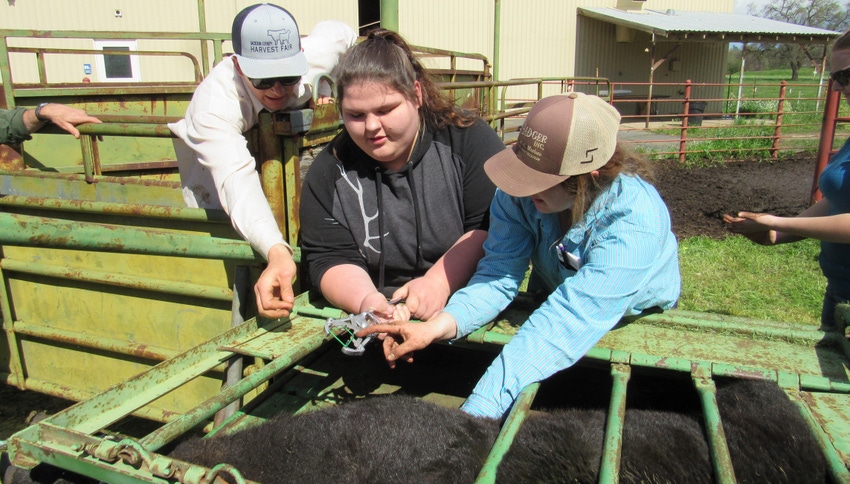
An Oregon ballot initiative proposed for 2022 would effectively criminalize the farming of food animals in the state by classifying their slaughter as aggravated abuse and redefining artificial insemination and castration as sexual assault.
Initiative Petition 13, filed with Oregon elections officials in November, would remove farmer exemptions from existing laws barring animal cruelty and specifically target practices used for “(b)reeding domestic, livestock, and equine animals,” according to the text of the initiative.
The proposed Abuse, Neglect, and Assault Exemption Modification and Improvement Act would delete all references to “good animal husbandry” from state statute and only allow an animal to be injured in cases of a human’s self-defense. A veterinarian’s spaying and neutering of household pets would still be exempt.
The initiative’s sponsor, a group called End Animal Cruelty, is beginning to gather the 112,000 signatures they’ll need by next summer and is working through the national progressive network ActBlue to recruit volunteers for the effort, animal activist David Michelson recently told Portland’s KBOO-FM, a donor-supported radio station.
“It would radically transform how we treat animals in the state of Oregon,” Michelson told the station.
‘Sanctuary state for animals’
“If this passes,” he told KBOO, “Oregon would essentially be a sanctuary state for animals. Any animal in the state of Oregon would have their rights more or less codified in law, that they deserve a life free of abuse, neglect or sexual assault.”
Michelson said the initiative wouldn’t ban animal agriculture entirely, nor would it abolish the sale of meat, leather or fur in Oregon. But livestock would have to die of natural causes before it could be used for food production, and “forced impregnation” of livestock would be outlawed, he said. Violators would face criminal prosecution.
Representatives of the Yes on IP13 campaign did not return an email from Farm Progress seeking comment.
Related: Nation's eyes on Colorado meat fight
Livestock groups say the initiative has dangerous implications for their industry. They note that language in the proposal specifically targets livestock transportation, poultry production and commonly accepted slaughter methods as well as fishing, hunting, trapping, wildlife management and other animal-related activities.
“From my experience, I can tell you the reason the cattle industry leans heavily on AI (artificial insemination) is improved genetics, which means they’re more efficient with feed, more efficient with every aspect” including rate of gain, Oregon Cattlemen’s Association executive director Tammy Dennee told Farm Progress. “It certainly would be problematic to have that taken away.
“If you really boil it down, we’re talking about local food production,” she said. “There’s a high degree of consumer awareness about purchasing local and understanding the local food supply, and you do not get better local food production than with a local beef producer.”
Colorado initiative
The proposal comes as animal-welfare activists in Colorado are gathering signatures for a similar 2022 ballot measure called the Protect Animals from Unnecessary Suffering and Exploitation (PAUSE) initiative.
It would ban artificial insemination and other commonly accepted veterinary and animal care practices in Colorado and would ban the slaughter of livestock that have not yet lived more than one-quarter of their anticipated lifetime, which for cattle would be about five years.
Opponents including the Colorado Cattlemen’s Association are sparring with backers over the initiative’s ballot language while holding rallies and engaging in a media blitz to explain animal husbandry practices and reassure residents that ranchers care about the humane treatment of livestock.
Related: Colorado ag unites to celebrate livestock industry
“It’s hard for people to pursue these in some places but easier in others,” said John Robinson, the National Cattlemen’s Beef Association’s senior vice president of membership and communications. “Certainly they’re floating these in low-hanging states.”
The NCBA is serving as “a clearinghouse of information” as it coordinates with state cattlemen’s associations and ranchers to fight the measures, Robinson told Farm Progress.
“It’s important for livestock producers to present a unified front to see that these things are knocked down when they pop up,” he said.
About 1.3 million head
Oregon�’s roughly 12,000 beef producers raise about 1.3 million head of cattle in the state’s 36 counties, the OCA’s Dennee said. In addition, many Northern California ranchers truck thousands of head of cattle into Oregon for summer pasture. As cows have a 9-month gestation cycle, AI for spring calving would happen in the summer.
“Given the fact that CCA has members who are right on the border of Oregon and operate in both states, any measures gaining momentum in Oregon similar to Colorado’s proposal could be concerning,” said Katie Roberti, the California Cattlemen’s Association’s communications director.
“There could also be concerns of implications for the California ranchers whose cattle split their time between Oregon and California during the year, depending on when grass and feed is best available,” Roberti said in an email.
Related: Activists urge scrutiny on 'mega-dairies' amid lawsuit
Oregon’s Dennee said her organization will be working with the Oregon Farm Bureau and other farm groups to mount an opposition campaign in the coming months. “This is an important issue for us,” she said. “We will monitor it closely.”
Even if the measure fails to qualify for the ballot or is defeated, psychologist-turned-activist Michelson won’t give up, he told KBOO. He cited recent surveys by Oklahoma State University and an animal-welfare think tank that found 47% of U.S. respondents want to ban slaughterhouses, and large majorities are uncomfortable with the overall treatment of animals.
He noted that women’s suffrage in Oregon passed by ballot initiative on the sixth try.
“We’ll just keep putting it before voters,” he said, “until a better world is here.”
About the Author(s)
You May Also Like






